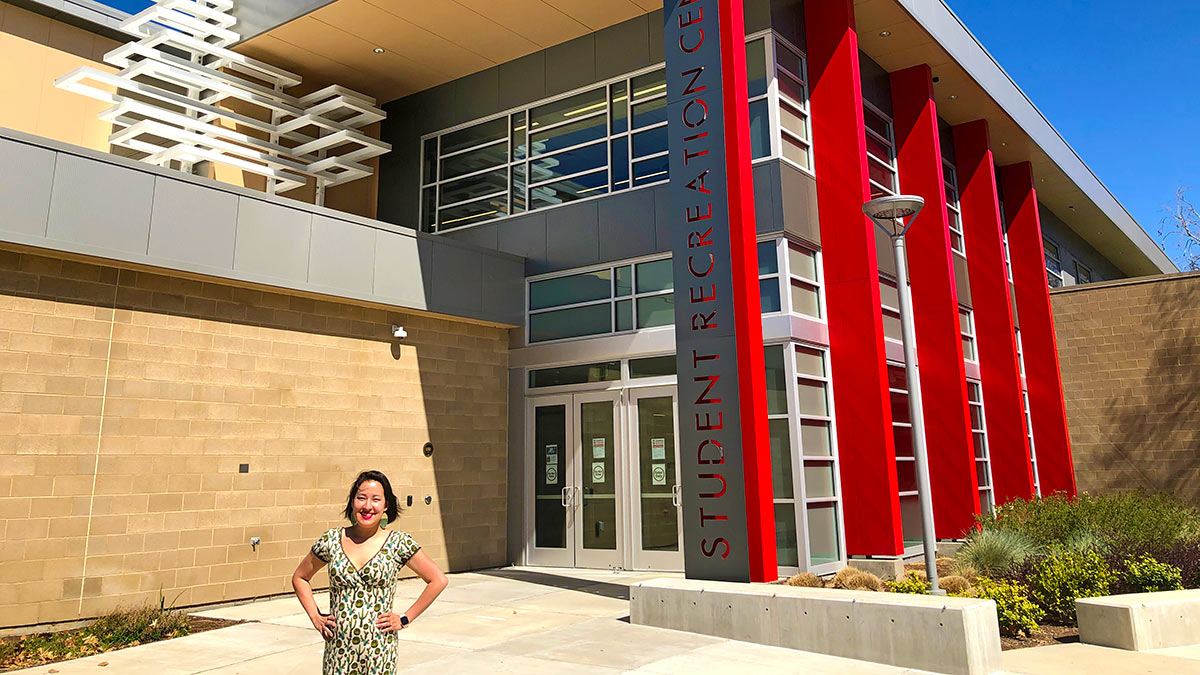- be_ixf; php_sdk; php_sdk_1.4.18
- 38 ms
- iy_2025; im_07; id_13; ih_04; imh_40; i_epoch:1.75240683413E+12
- ixf-compiler; ixf-compiler_1.0.0.0
- py_2025; pm_06; pd_10; ph_02; pmh_50; p_epoch:1.74954901528E+12
- link-block; link-block_link-block; bodystr
- pn_tstr:Tue Jun 10 02:50:15 PST 2025; pn_epoch:1.74954901528E+12
- 0 ms
- be_ixf; php_sdk; php_sdk_1.4.18
- https://sou.edu/academics/esports-matter-competitive-videogaming-booming-market/
- https://sou.edu/academics/esports-matter-competitive-videogaming-booming-market/

Esports Matter
Comm Program Prof Precious Yamaguchi Helps Link Technology, Culture & Student Learning in a Booming Market for Competitive Videogaming
A few years ago, the economic value of watching other people play videogames might have seemed like a losing proposition. But the global esports market exceeded $1 billion in 2019, and by some accounts is expected to grow at an average rate of 24 percent for the rest of the decade.
Southern Oregon University has responded to the esports boom by adding a new minor in esports management, creating a center for esports training and competition in the Student Recreation Center, and launching an intercollegiate team in esports, expected to make its competitive debut in Spring 2021.
Comm Program Associate Professor Precious Yamaguchi has played a key role in designing the interdisciplinary minor, and her courses on the culture of videogaming will be an important element of SOU’s esports curriculum. Dr. Yamaguchi took the time to talk to us about esports, what they mean to her and what the minor can do for students.
What are esports and what have they done for gaming culture?
Competitive gaming, especially for videogames and online games, has been around for quite a while. I’d say almost at least 20 years. An esports event is kind of like attending a basketball or a soccer game. Esports are similar to a lot of other types of professional leagues where there are drafts, international teams and fans that follow the games. It brings this international community together.
Streaming services like Twitch and messaging platforms like Discord make it possible for many people to come together and observe different types of gamers and competitive games. I think that we have this type of culture where we like to watch things that we might not necessarily be doing ourselves.
You have these very famous teams that have their own type of drama and excitement, and it goes beyond just watching people in the actual competition. You watch these different teams develop or the type of drama that occurs like players getting dropped from a team, it’s kind of like football.
People have their favorite players and they know when someone got married or their father passed away. Then, with online streaming, we’re able to watch people in different countries and engage with each other. My son is only four years old, but he has his favorite Minecraft players, and he thinks their commentary is funny. The players are teenagers, and I have to remind him that he’s not a teenager, yet.
Would it be correct to say that esports has helped the online gaming community become more inclusive?
Yes, it’s a lot more inclusive globally, and it’s super exciting. Think about basketball. Not all of us can be NBA players, but it doesn’t stop us from wanting that connection of being in the game. Few of us are professional athletes, but we are connected to those professional athletes, which are now computer online gaming athletes.
What brought you into the esports world?
When I was growing up, my grandfather owned a small company that rented out different types of entertainment, things like pool tables, pinball machines and arcade games. So, at my grandparents’ house, he would have all of these different types of games there. From a very, very young age, my brother and I were able to play for free, and I became very interested in video games.
I became interested in esports through the game Dota 2. Seattle hosts one of our nation’s largest esports competitions, which is called the TI, which is the international Dota 2 competition, and four or five years ago, I became really interested in attending these events. I was able to see the international impact that different teams of not only Dota 2, but World of Warcraft and League of Legends have on this growing field. It is a mix between business, communication, graphic arts and computer science.
At SOU, I taught a course called Video Games and Cultures and I was also the faculty advisor for the video games coalition. In 2018, President Schott sent me to a conference in Atlanta called NACE Sports, which focuses on competitive esports in colleges. I was surprised at how many universities that were there trying to get information about how they could start an esports program. I listened to some of the coaches that had already started successful teams in the Midwest, Canada and California, and how they created community-based competitive games across the country, and I brought all of that information back to our campus.
What do students learn besides the team building in esports?
The esports minor brings in areas like business, communication, emerging media and digital arts, and computer science. Students aren’t just playing in the dark all day, but learn about the video game culture and media literacy.
How do teams differ from country to country?
I’m interested in looking at teams like the ones I saw when I used to live in China and worked at a university. One of my students moved into a gaming house. In China, there are a lot of gaming houses where the teams live together. They eat, breathe, live, and play as a team 24 hours a day. At SOU, we are not doing that, we encourage players to have a balanced college life.
A lot of universities who have esports teams work out together, not like a football workout, but their own type of workout for their hands, back and shoulders. This creates a type of routine that tries to break the stereotype that gamers just stay up all night, sleep all day and eat junk food. I was really inspired by how different universities have paid coaches to run their esports teams as an actual competitive team, and I think that’s what we’re trying to build for SOU students.
Are there any ethical challenges in esports?
There can be a lot of drama on Twitter. I focus more on that because I’m from communication. There is also the challenge of gender and nationality. I think with a lot of entertainment or athletics, even as a female fan, you’re challenged by male fans for the idea that you’re not technically skilled enough or that you’re not as knowledgeable. We have a lot of those same challenges in esports, but there is a lot of respect for different genders and having co-ed teams.
I don’t know the exact numbers, but I would say that esports teams are predominantly male. However, esports can be situated more like campus recreation rather than competitive teams of male and female, which is great because everyone is invited and you don’t have the restrictions of gendered teams. I think the minor is giving us this type of context and information in preparation for being able to facilitate online competitions and teams in the field of esports and to really do it intentionally with inclusion and diversity.
What doors open for students with an esports minor?
A lot of doors! Students could go into the more development and animation side.There are also the people that do the research for the storylines of games. For big events, there are management and business planning positions, as well as different types of fundraising campaigns and advertising.
Esports offers a lot of crowdfunding opportunities and engagement with different communities. And there’s also the swag that people like to buy. Coming from the communication side, I can really see that social media, broadcasting and television are being developed. ESPN has their own online game channel. Just like commentary and the announcers are a huge part of a baseball game, it’s the same thing with online gaming. They have commentators and different personalities that are linked to the online games.
Interview by Autumn Micketti (@mountainmusicwoman), Community Manager for the Communication Program at Southern Oregon University.


